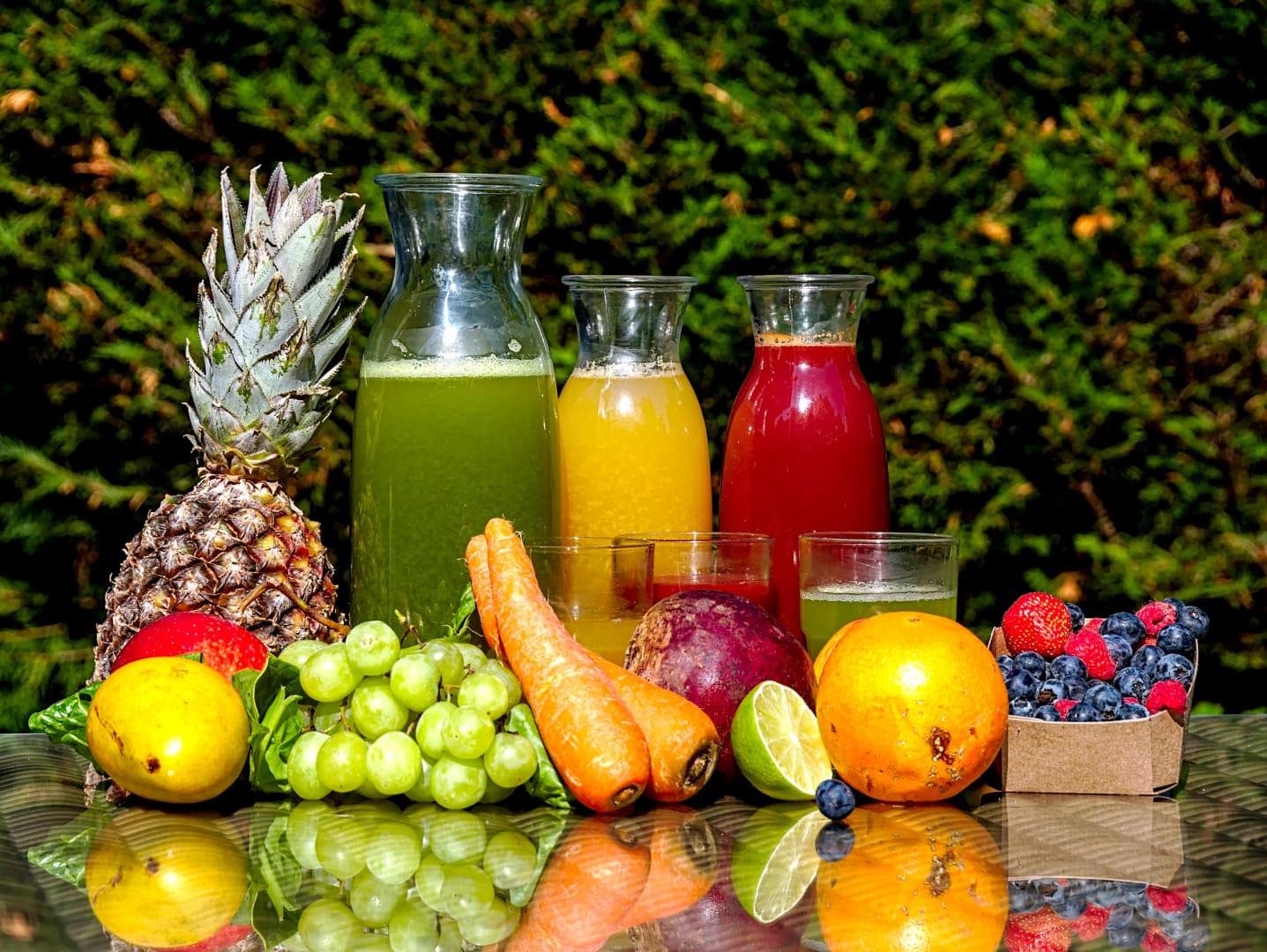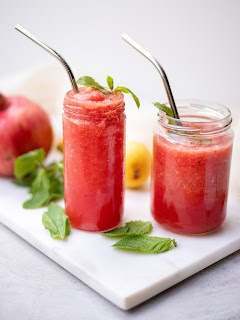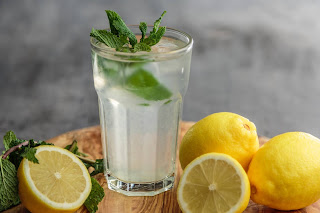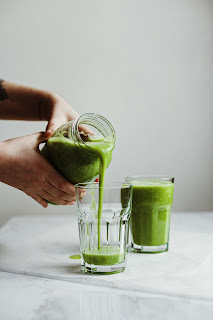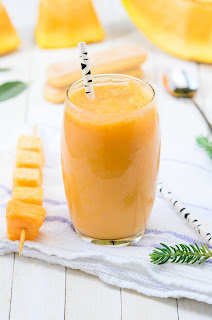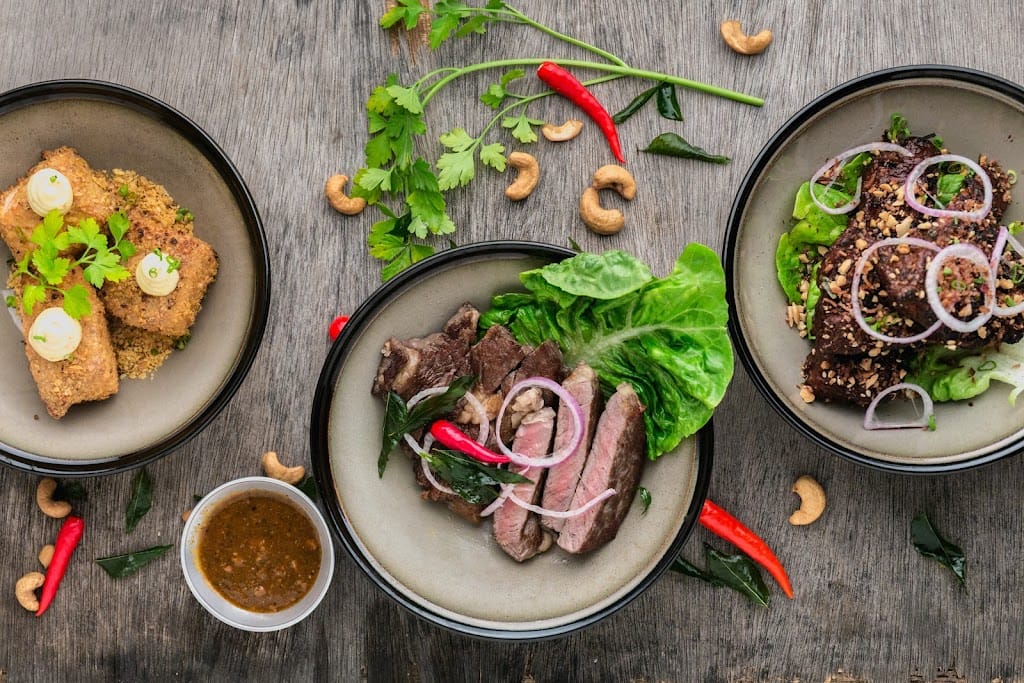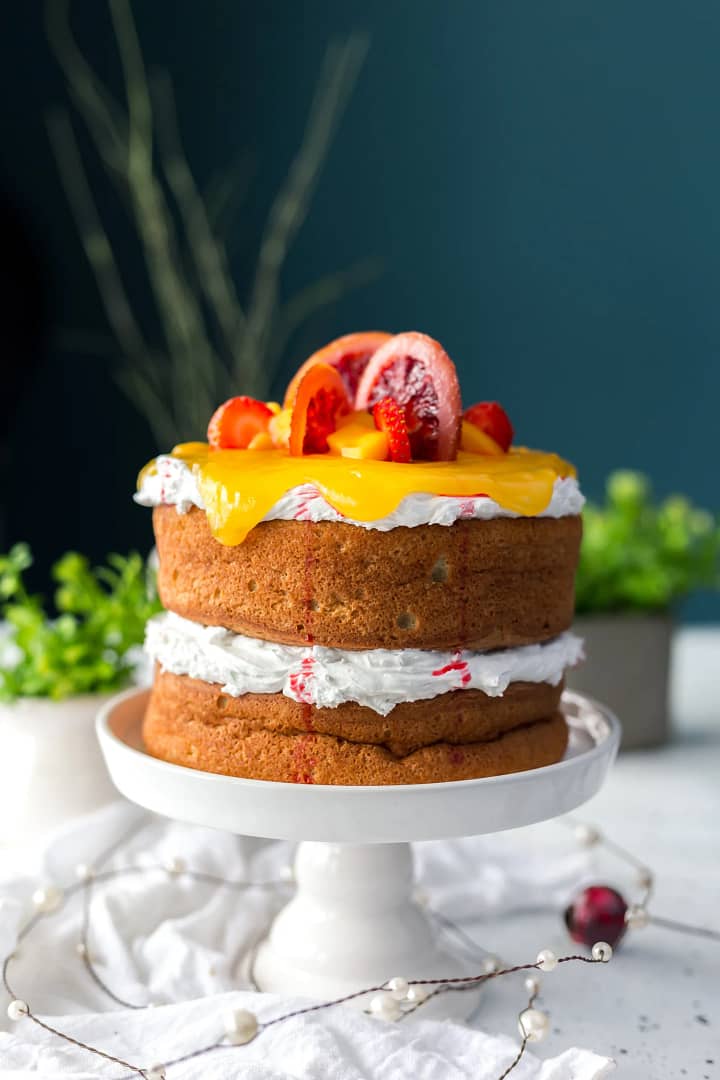Homemade Healthy Drinks
Juice is everyone’s favorite snack. We drink it more in summer to keep our bodies hydrated. It is also very good for our body and immunity. But do you know that juice is not recommended for babies under one year of age? Homemade juice or fresh fruit juices are also good to avoid before age one. Even after one year, the quantity of juice that you give to your child should be very little. Whole fruits and plain better are best for babies and kids.
The reason why doctors don’t recommend juice is that it has a high risk of causing tooth decay and babies like them so much because of its sweet taste that they don’t prefer drinking plain water and they fill up their stomachs with juice instead of having all the healthy meals. Juice lacks the fiber which contains in whole fruit.
Avoid giving soft drinks, packaged drinks, juice with sugar, etc. If you want to introduce juice to your baby’s diet then you can prepare fresh homemade juice with fresh fruits without adding any sugar for babies above one year of age. Remember to give a few sips of water after your baby had juice or any kind of sweet. This prevents tooth decay.
In this article, I will tell you fresh fruit juice recipes which are very easy to make and healthy for your baby. You can also check out some other articles related to this:-
- Introducing food to your baby.
- Food chart for 6 to 7-month-old baby.
- Food chart for 8 to 9-month-old babies.
- Food chart for 10 to 12-month-old babies.
- Food chart for 1 to 2 years old baby.
- Quick Baby Recipies.
- Breakfast Ideas for Babies and Toddlers.
- Lunch options for babies and toddlers.
- Dinner ideas for babies and toddlers.
- Quick snack recipes.
1. Banana Milkshake:-
Place
- Bananas contain calcium, vitamin A, magnesium, potassium, iron, and fiber.
- It can be introduced as early as 6 months due to its soft texture and high health benefits.
- They are good for digestion and help in the strong growth of teeth and bones.
- Helps in the creation of enough RBCs and hemoglobin.
- Helps in healthy weight gain and boosts immunity.
- To make a banana milkshake you will need bananas, boiled milk, cardamom powder, sugar, chocolate syrup, and some dry fruit powder.
- Take 3 to 4 fresh ripe bananas and 500 ml of milk.
- Slice the bananas and add them to a mixer jar.
- Add some sugar, and cardamom powder. You can also add cocoa powder, dry fruit powder, or any other fruit to make it more tasty and healthy.
- Add 3 spoons of milk and grind it to a fine paste.
- Now take it out in a bowl and add the remaining milk and site it.
- Decorate the glasses with chocolate syrup and serve it chilled.
2. Orange Juice
- Oranges contain vitamin C and antioxidants. They boost immunity and are good for your baby’s skin. It also helps in preventing constipation.
- You can introduce orange juice to your baby in small amounts when he is 9 to 10 months old.
- If your baby is sensitive to acidic foods then you have to wait till your baby turns one year because oranges and all citrus fruits are acidic. Or else your baby might get rashes.
- It’s always better to ask your pediatrician before introducing any new food or juice to your baby.
- To make orange juice first wash the oranges in water.
- Cut them in half.
- Squeeze them with the help of a juicer or with a hand.
- Remove the pulp from the juice and then offer the juice.
- Don’t add honey or sugar. You can add honey or sugar if your baby is one year old.
- You can feed them with a spoon or if your baby is old enough you can give them a straw or a sippy cup.
3. Ragi Milkshake
- Ragi contains iron, calcium, and proteins in high amounts.
- It can be introduced as early as 6 months of age. You can make ragi porridge for your baby.
- To make a ragi milkshake you will need 2 to 3 spoons of ragi flour, 500 ml of boiled milk, and 2 to 3 spoons of jaggery.
- Take 2 to 3 spoons of ragi flour and mix it in half a glass of water and stir it completely. Make sure there are no lumps. The water shouldn’t be hot or cold. It should be at room temperature.
- Now take a pan and add the water mixture to it and turn on the stove on medium milk.
- Add 2 to 3 glasses of water and cook the ragi until it becomes thick.
- Now add the milk and stir it without any lumps.
- Add 4 to 5 spoons of sugar.
- Cook it for 10 minutes or till the milk becomes a little thick.
- Now take it out in glasses and serve warm or chilled with some dry fruits on top.
- You can also cook a ragi milkshake with jaggery if you don’t want to eat sugar. But the process will be slightly different.
- You have to cook jaggery first in another pan and make a syrup out of it and then add it to the milkshake when it is at room temperature. Or when you cook ragi first you can add the whole jaggery at that time so that it cooks and dissolves in the ragi porridge.
4. Sweet Lassi
- Take one full cup of fresh curd.
- Now beat it with a spoon or use a blender to blend it.
- When it becomes smooth add some water to it. Don’t make it too watery like buttermilk. It should be a little thick.
- Add some sugar and some food color to make it attractive.
- Add dry fruits on top. You can also add khoya if you want.
- Serve it in lassi glasses chilled.
- You can also add some custard powder to it to enhance its flavor. There are many flavors in custard powder like strawberry, butterscotch, mango, and vanilla. Add just one or half spoon or just sprinkle it on top of the lassi to give its unique flavor.
- Decorate the glasses with chocolate syrup and serve it chilled.
5. Watermelon juice.
- Watermelon is a perfect snack on a hot summer day. It is a refreshing fruit that contains many vitamins and antioxidants. It contains 90% water. It also contains vitamin C which boosts your baby’s immune system and helps fight diseases like colds, coughs, ear infections, etc. It also has vitamin A which develops healthy skin and strong teeth in your baby.
- You can introduce watermelon after 8 months of age. You can either give it in juice form or cut it into tiny bite-size pieces which your baby can easily chew and swallow. Remember that your baby is still learning to chew food and is making a transition from pureed food to mashed food so make sure you mash the watermelon properly if your baby is not able to chew it properly.
- Remove all the seeds carefully before giving them to your baby. Seeds can cause a choking hazard.
- To make a simple watermelon juice first wash the watermelon properly and then remove its seeds.
- Cut into medium pieces and grind them in a mixer or a juicer.
- Now strain the juice with the help of a strainer to remove the excess pulp.
- Serve it in a glass or with a spoon to your baby.
- Don’t give too much juice. It will fill up your baby’s stomach and he will not be able to eat other foods.
6. Mango Juice.
- Mango is known as the king of fruits due to its delicious taste and the energy it gives. They are loaded with vitamins and minerals and are highly nutritious.
- You can start introducing mangoes at 8 months of age. You can also introduce it after 6 months but it’s better to consult your doctor before introducing it.
- Mangoes have many health benefits like help in digestion, being good for skin, eyes, and brain development, boosting immunity, preventing anemia, helps in healthy weight gain.
- Mash the mano properly when you give it to your baby. Make sure there are no long fibers or solid clumps. Because these can cause indigestion and choking hazards.
- Always give ripe mangoes. Unripe mangoes can cause constipation.
- Mango puree is better to give than giving mango juice.
- To prepare mango juice just cur the mango into big slices and grind it in a mixer or juicer.
- Don’t add any sugar or ice cubes.
- Blend it smoothly and feed your baby with a spoon.
- Your baby will love it so much.
- You can also make a yummy mango milkshake by adding milk while grinding it after your baby turns one year old.
7. Lemonade.
- Lemon juice is not recommended for babies in less than one year. And babies who are above one year also should not consume lemon juice in high quantities due to its high acidic nature.
- You can start introducing lemon as early as 6 months to your baby. Just a few drops.
- You can add a few drops of lemon juice to your baby food or in water to make it flavourful.
- You can marinate mutton, chicken, and fish to make them more tender and soft for your baby to easily chew the food.
- Lemon juice is perfect for babies above 3 years. You can give them a glass of lemonade without any hesitation.
- To make a healthy lemon juice take one glass of water and add half lemon juice to it with some pudina leaves and a pinch of salt.
- Mix all these ingredients and serve at room temperature.
8. Pineapple juice.
- Pineapple is also a citrus fruit that contains vitamin C which is good for your baby’s immune system and absorbs iron from other foods. It also helps in healthy metabolism and fights against chronic diseases.
- You can introduce pineapple to your baby as early as 6 months. But since it is mildly acidic it can cause diaper rashes and other skin rashes. So after introducing pineapple if you see any of these signs like rashes then it’s better to wait and try offering pineapple after 8 months or one year.
- You can make a pineapple puree by just grinding some freshly sliced pineapple in a mixer. It becomes a thick puree when you grind it so it will be easy for your baby to eat it with a spoon.
- If you want to make juice out of it then just grind the pineapple slices and strain it out with the help of a strainer. Remove all the extra pulp as your baby might not like to have it with pulp.
- If you want to give pineapple as a finger food then cut it into bite-size pieces and remove the brown color patch on it which can hurt your baby’s tongue.
9. Buttermilk.
- This is one of the traditional juices we all have been drinking since our childhood. Some drink it daily to maintain hydration in their body.
- It is very light and has a refreshing taste. Mainly given on hot summer days to cool your baby’s body.
- It helps in the digestion of food when you drink it after lunch or dinner and gives a cooling effect to your baby’s body. It’s better to avoid giving it to your baby at night.
- If your baby is allergic to dairy products then buttermilk is also not good for his health as it contains milk proteins.
- It strengthens the immune system and great food when you are not feeling well or not in the mood to eat anything.
- It is a good source of calcium and vitamin D.
- It works as a medicine during jaundice, hepatitis, and cholera.
- It is very easy to make buttermilk at home. For this, you first have to make curd at home or you can buy it at the market.
- To make normal buttermilk take 3 to 4 spoons of curd in a bowl.
- Blend it smoothly with the help of a blender or a whisk.
- Add 3 glasses of water and a pinch of salt. Ready to serve.
- You can also make masala buttermilk if your kid doesn’t like to drink plain buttermilk.
- In masala buttermilk, you have to add some spices like salt, black pepper, cumin powder, coriander leaves or powder, ginger paste, and hing ( asafoetida).
- Masala buttermilk is suitable for babies above 18 months of age because younger children don’t like to eat any food with so many spices in it.
- You can start giving simple and plain buttermilk to your baby after 8 months of age without adding any salt or spices.
10. Roohafza.
- This drink is known mainly to Muslims because its made in Pakistan and people usually drink t during the holy month of Ramzan when they are fasting.
- This drink gives a cooling effect to the body and has a refreshing taste.
- You can get the roohafza syrup in the market and on Amazon too.
- This drink is recommended to babies after 20 months of age because it contains a high amount of sugar syrup and since it is a packaged outside drink it’s better to avoid and give just a few sips if your baby asks for it.
- To make roohafza, add 2 spoons of roohafza syrup in a bowl.
- Add 3 glasses of water to it and a few drops of lemon juice and pudina leaves.
- You can also add sabzi seeds which give a cooling effect to the body.
- Sabza seeds have to be soaked for at least 10 minutes in water or you can add it to the juice and keep it aside for 10 to 15 minutes.
- No need to add sugar to the drink as the roohafza syrup already contains sugar.
- You can also add milk instead of water to make a milkshake out of it.
- It tastes very good and becomes healthy.
- If you are making a milkshake then no need to add lemon, pudina leaves, sugar, etc.
- You can add sabzi seeds to it if you want.
11. Beetroot juice.
- Beetroot is rich in vitamins and minerals. It contains vitamins A, B, C, K, E, calcium, iron, potassium, etc.
- It is good for digestion, prevents anemia, cleanses your body, and boosts immunity.
- You can introduce beetroot to your baby’s diet as early as 6 months. But doctors recommend introducing it at the age of 8 months because it contains nitrates which can be hard to digest for your little one.
- If you are introducing early then limit the quantity to 1 or 2 spoons a day.
- Always give cooked or steamed beetroots to your baby. You can also make a puree out of it or give it in the form of juice.
- To make beetroot juice you have to cook the beetroot in water or use a steamer to make it soft.
- Beetroots take more time to be cooked completely.
- Cut it into pieces once they are cooked and grind it in a mixer.
- Now strain the juice and remove all the extra pulp. Serve it with a spoon or a sippy cup at room temperature.
- No need to add sugar or honey if your baby is below one year.
- If your baby is not eating plain beetroot puree you can mix it with curd or with any other food and give it.
12. Cucumber juice.
- Cucumbers can be introduced into your baby’s diet after 8 months of age.
- They have to be cooked or steamed well before giving them to your baby.
- They have to be peeled and the seeds should be removed because your baby’s stomach will not be able to digest these things.
- You can make a cucumber puree or mash it after cooking it.
- Raw cucumbers can be given to your baby when he turns one year old.
- Cucumber is rich in vitamins C, K, magnesium, folate, manganese, potassium, and silica.
- It is good for the skin and contains antioxidants.
- It keeps you hydrated and refreshing.
- It is a great snack for babies who are teething.
- To make cucumber juice peel the cucumber skin and remove the seeds.
- Boil it for a few minutes or steam it. If your baby is one year old you can give it in its raw form.
- Now blend it smoothly and strain the juice.
- Remove the extra pulp and serve.
13. Muskmelon juice.
- Muskmelon is rich in vitamin A, vitamin C, and antioxidants. It is so juicy and is just like watermelon.
- Babies love to eat it in its whole form. You can also make a puree or juice out of it.
- It can be introduced as early as 6 months of age.
- To make a muskmelon juice first peel off the skin and remove the seeds.
- If your baby is 6 to 7 months sold then steam it for a few minutes.
- Cut into slices and bring it.
- If your baby is older you can give the juice as it is or strain it if your baby doesn’t like to drink thick juices.
- Younger babies can have it in pureed form.
- Serve it with a spoon or in a sippy cup.
- Babies above one year can have it as a snack but make sure you cut it in bite-size pieces to prevent choking hazards.
Discover more from supermomsclub
Subscribe to get the latest posts sent to your email.

